Social Cues Teaching Resources
Teach your students how to read social cues with SEL activities worksheets, printables and more for primary school teachers.
This collection of social awareness resources was developed by teachers, for teachers, with a focus on saving you time on your lesson plans! Explore teaching resources created to help your students pick up on both verbal and non-verbal cues, interpret them and react appropriately.
Looking for tips on teaching students how to pick up on social cues? Read on for a primer from our teacher team!
What Are Social Cues? A Kid-Friendly Definition
Not sure how to explain the meaning of 'social cues' to your students? Here's a kid-friendly definition from our teacher team!
Social cues are special signals that people give to each other without using words that can help us understand how they are feeling or what they want.
You can see social cues in things like how someone's face looks and how they move their body or even in how they talk. They help us know when we need to be kind, when we need to listen and when to give someone space.
It's important to pay attention to these cues because they can help us be better friends and understand others better.
Social Cues Examples
Sharing examples of social cues with your students can help make this intangible concept a bit more concrete, so here are a few good examples to share with your class:
- When someone is smiling, it's a cue that they are probably happy.
- When someone is frowning, it lets us know they are sad.
- When someone is feeling shy or nervous, they might avoid making eye contact with other people.
- Giving a thumbs up is a social cue that lets us know someone approves.
- When someone speaks softly, it is a cue that they are sharing a secret that we should not share.
- If someone is tapping their foot, it can be a cue that they're impatient.
Teaching Kids How to Read Social Cues
Reading social cues is easier for some people than it is for others, but by around the time they start primary school, many students begin to be able to pick up on basic social cues.
Around age 3 to 5, many kids can recognise simple facial expressions like happiness, sadness and anger. At this stage, many kids also start to notice and respond to others' body language and gestures.
Building on those basic social cue reading skills is something that you can work on in your social and emotional lessons by teaching kids to identify and understand various social cues — such as facial expressions, body language and tone of voice — and working with them to understand how to abide by social norms like waiting your turn on the playground or honouring their classmates' personal space.
As kids approach upper elementary and middle school, many will better understand more complex social cues, including sarcasm, irony and non-literal language.
- Plus Plan
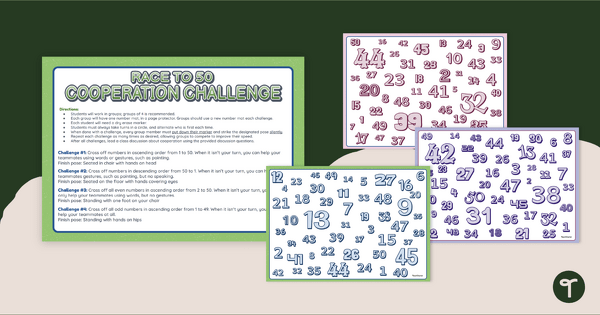
Race to 50: Cooperation Challenges
Explore the benefits of cooperation with a set of team-building number race activities.
- Plus Plan
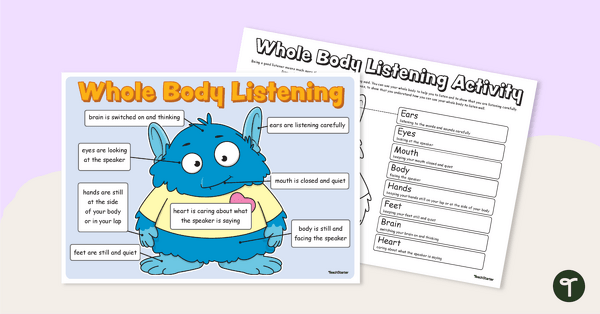
Whole Body Listening – Poster and Worksheet
Use this poster and accompanying worksheet to teach your students about whole body listening.
- Plus Plan
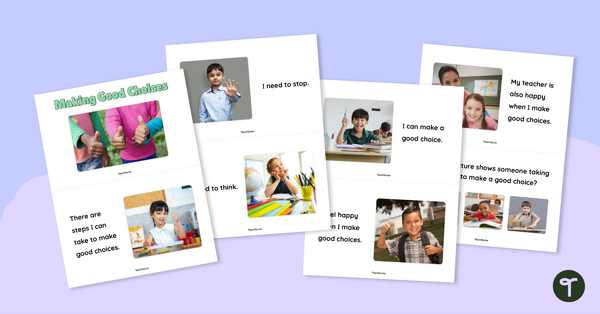
Making Good Choices Mini-Book
Help your students develop strategies for making good choices with this printable social story mini-book.
- Free Plan
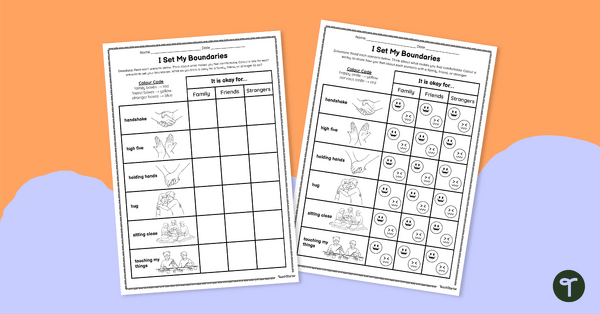
I Set My Boundaries Worksheets
Identify your personal space boundaries with this worksheet set.
- Plus Plan
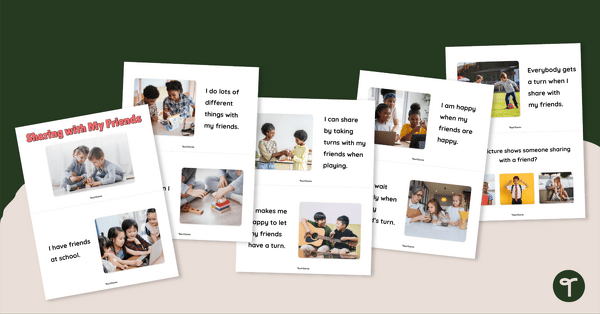
Sharing with My Friends – Mini-Book
Develop skills and strategies for sharing with others with this printable mini-book.
- Plus Plan
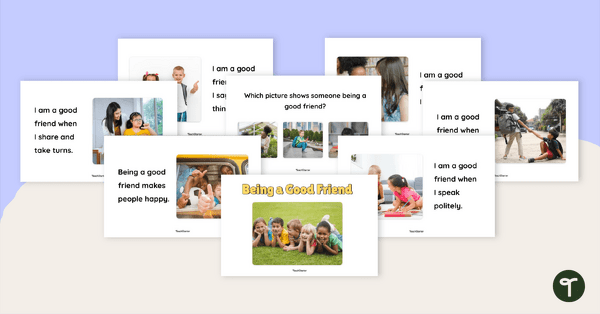
Being a Good Friend – Mini-Book
A social story to develop social skills for being a good friend.
- Plus Plan
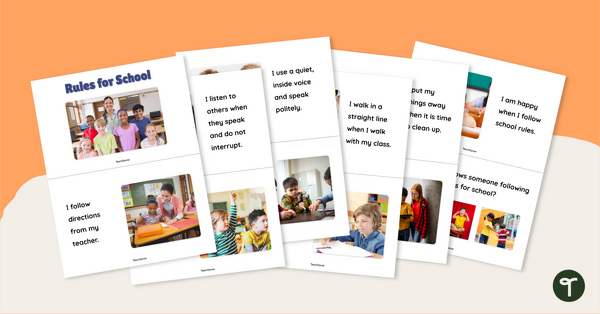
Rules for School Mini-Book
Remind students about appropriate behaviours at school with this printable mini-book.
- Plus Plan
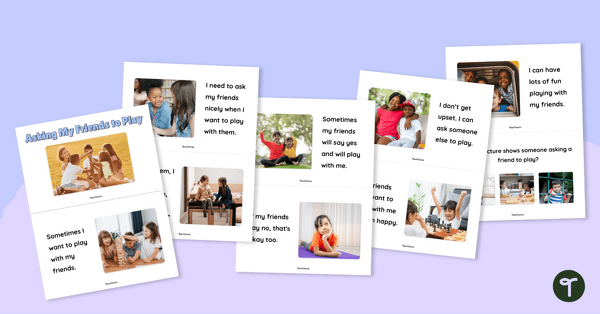
Asking My Friends to Play Mini-Book
Learn about appropriate social skills when asking friends to play with this printable mini-book.
- Plus Plan
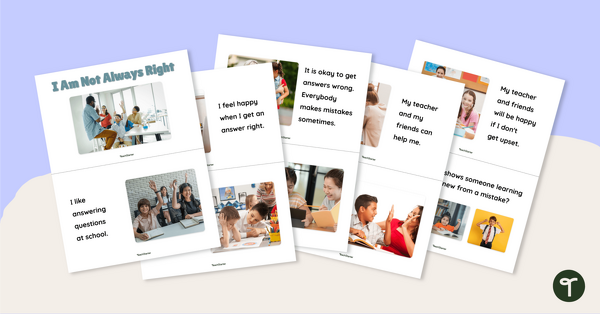
I Am Not Always Right Mini-Book
Help your students learn how to cope when they make a mistake with this social story mini-book.
- Plus Plan
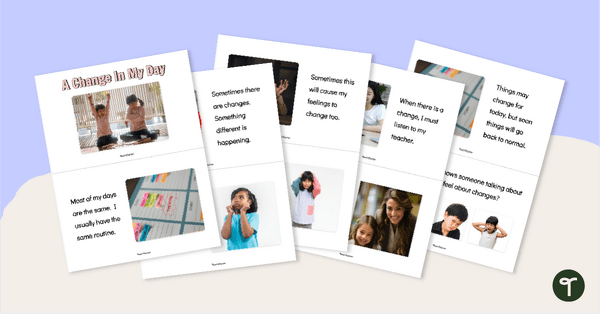
Coping With Change - Social Story Mini Book
A social story to develop coping skills for when there is a change in the routine.
- Plus Plan
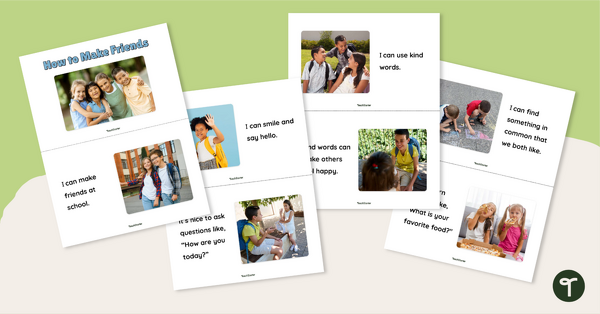
How to Make Friends Social Story
Learn the different ways you can make friends with this how to make friends social story.
- Plus Plan
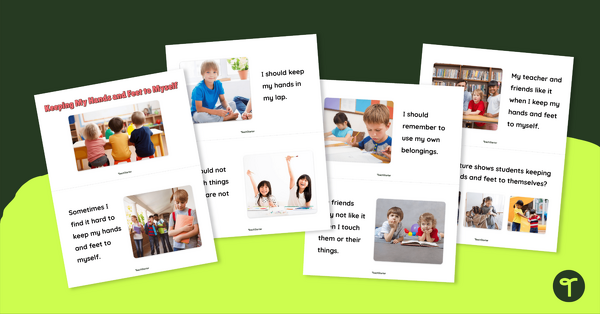
Keeping My Hands and Feet to Myself Mini-Book
Teach your students about the importance of keeping their hands and feet to themselves with this printable mini-book.
- Plus Plan
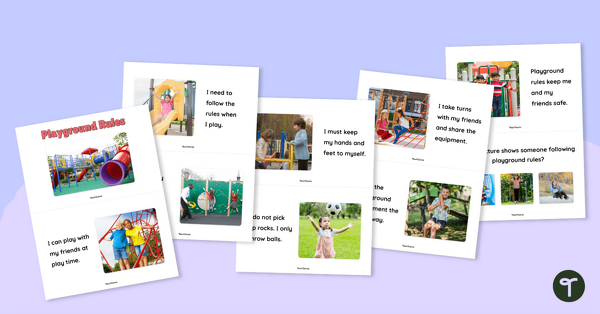
Playground Rules Mini-Book
Remind your students about playground rules with this printable mini-book.
- Plus Plan
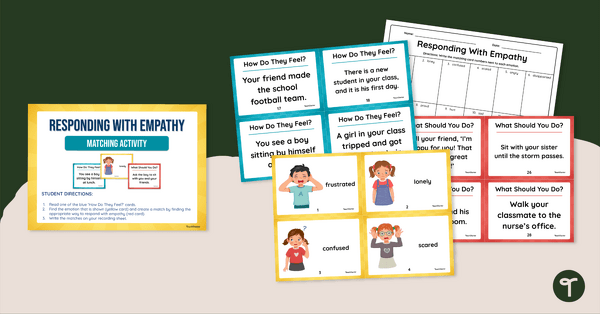
Responding With Empathy Matching Activity
Guide your students to identify emotions in others and select appropriate ways to respond with empathy with this matching activity.
- Plus Plan
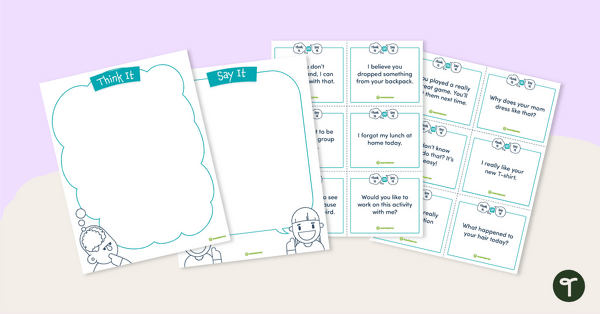
Think It or Say It? - Sorting Activity
Teach students about using a filter when speaking with others.
- Plus Plan
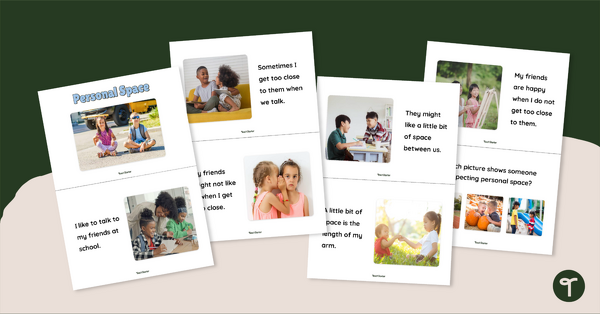
Social Stories - Personal Space
Learn about the importance of leaving personal space when interacting with others with this personal space social story.
- Plus Plan
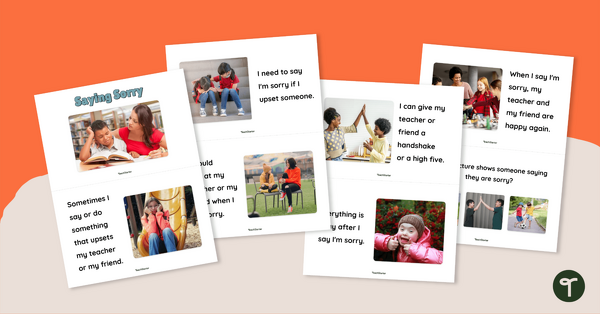
Saying Sorry Mini-Book
Learn strategies and skills for saying sorry and apologising to others with this printable mini-book.
- Plus Plan
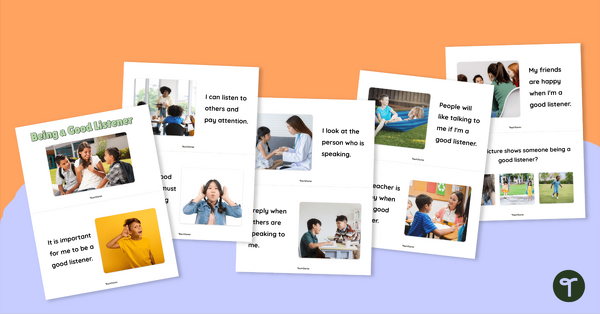
Being a Good Listener Mini-Book
Develop and reinforce appropriate listening skills with this printable social skills mini-book.
- Free Plan
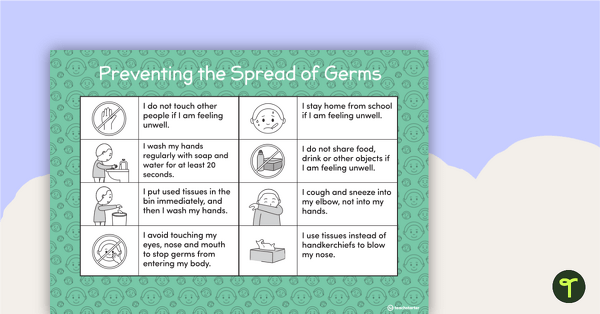
Social Stories – Preventing the Spread of Germs
A social story to assist students in preventing the spread of germs.
- Plus Plan
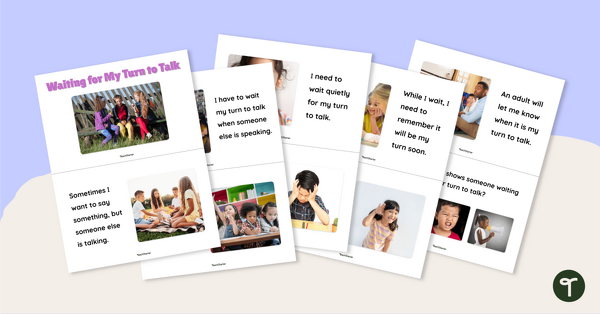
Waiting for My Turn To Talk Mini-Book
Help students develop efficient strategies when waiting for their turn to talk with this social story mini-book.
- Plus Plan
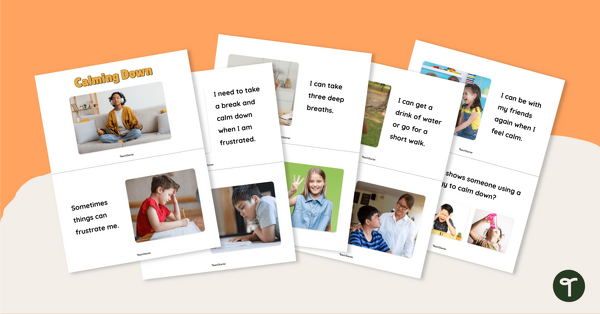
Calming Down Mini-Book
Help your students to keep calm when they are experiencing heightened emotions with this social story mini-book.
- Plus Plan
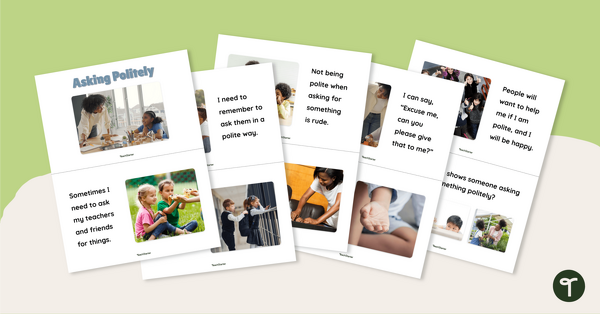
Asking Politely Mini-Book
Help your students learn how to ask for things politely with this social story mini-book.
- Plus Plan
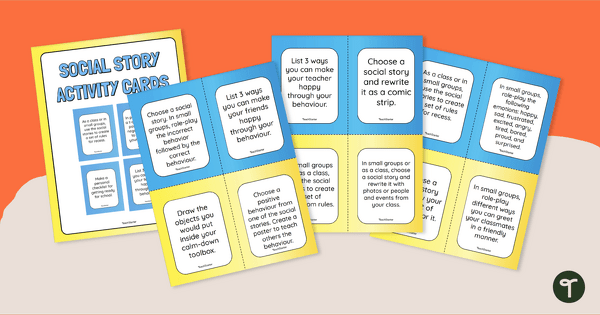
Social Stories - Activity Cards
Help your students build social skills and practise concepts learned within our social stories with a set of printable task cards.
- Plus Plan
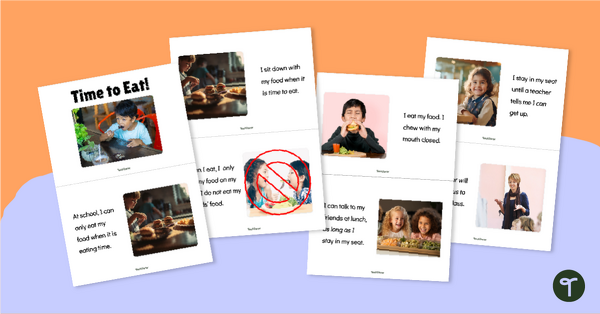
Time To Eat – Lunch Procedures Mini Book
Teach your students appropriate lunch procedures with a printable Time to Eat Social Stories booklet.
- Plus Plan
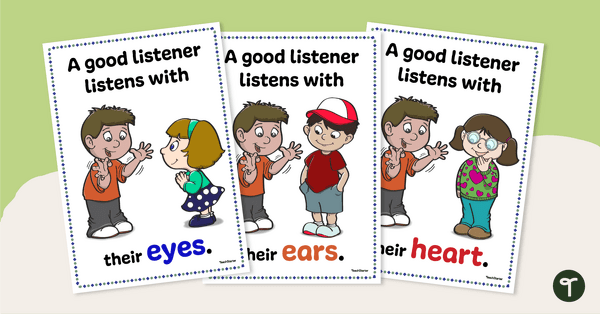
Good Listener Posters
Use this poster to teach your students how to be good listeners.
- Plus Plan
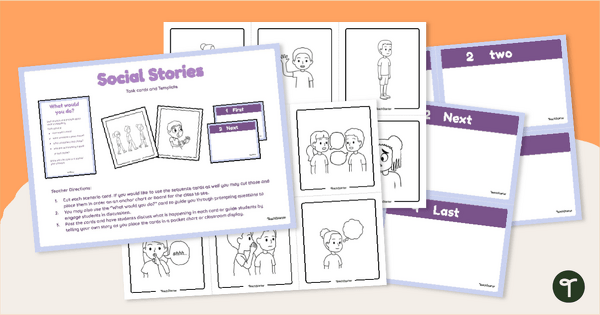
Social Story Cards and Templates
Create individualised social stories for students in your classroom with this versatile set of social story cards and templates.
- Plus Plan
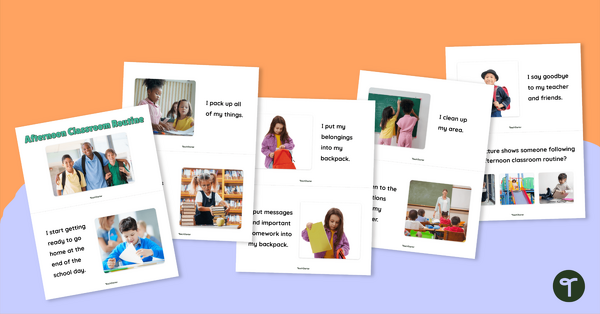
Afternoon Classroom Routine Mini-Book
Review expectations with your students regarding your afternoon routines with this printable mini-book.
- Plus Plan
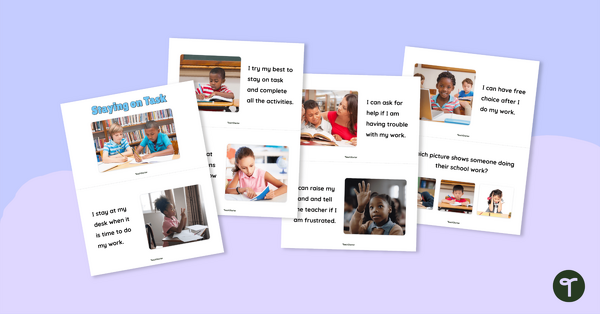
Staying on Task Mini-Book
Review different strategies for on-task behavior with this printable mini-book.
- Plus Plan
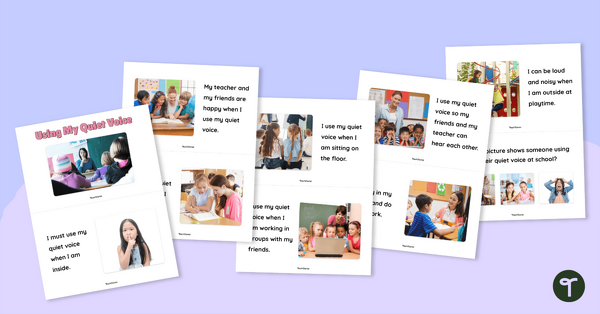
Using My Quiet Voice at School Mini-Book
Teach your students where they should use an inside voice and the benefits of doing so while at school with this printable mini-book.
- Plus Plan
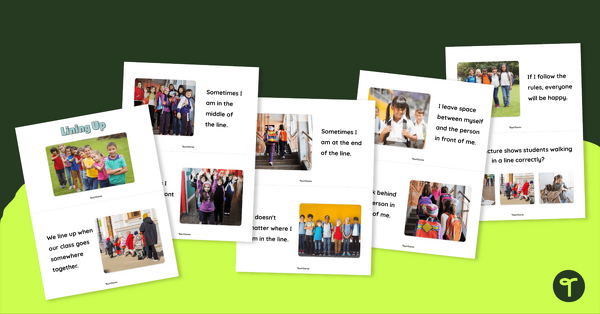
Lining Up Mini-Book
Teach your students the proper way to line up with this printable mini-book.
- Plus Plan
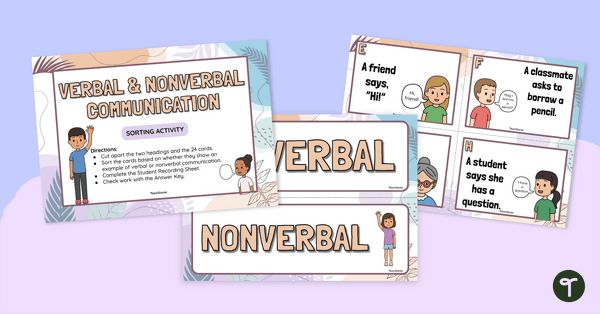
Verbal and Nonverbal Communication Sorting Activity
Use this sorting activity with your grade one and grade two students to practise differentiating between verbal and nonverbal communication methods.
- Plus Plan
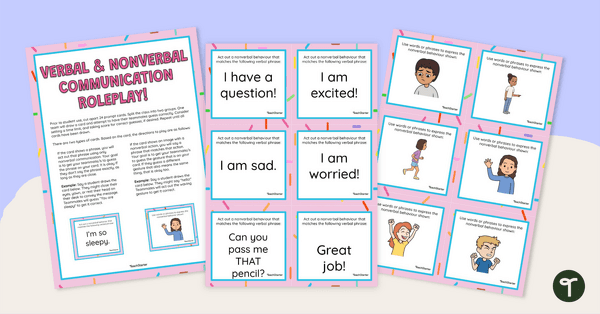
Verbal and Nonverbal Communication Roleplay Game
Use this active learning game to allow students to practise communication verbally and nonverbally, and interpret different verbal and nonverbal messages.